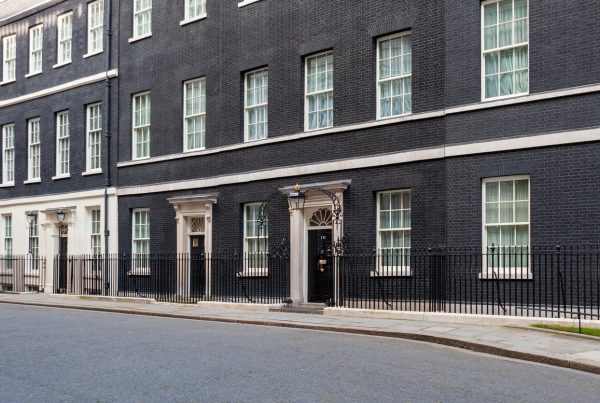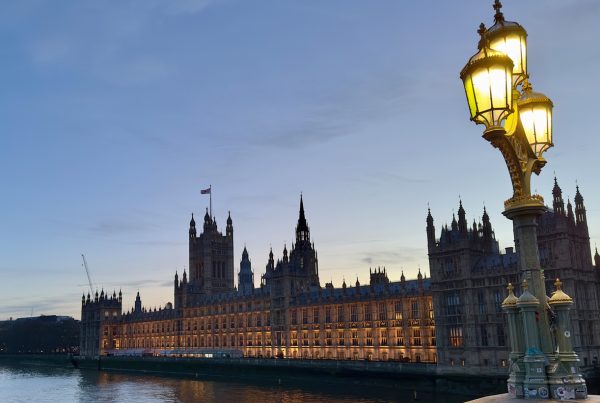From Politics First
Wednesday 7th September will be an important day for me for two reasons. Firstly, it is the Opening Ceremony of the Paralympics in Rio. London 2012 transformed so many people’s perception of disability sport, and made household names of David Weir and Ellie Simmonds amongst many others. And although I will be attending the Rio Games as a commentator, as opposed to a competitor, my pride and excitement at being associated with that wonderful event will be undiminished.
It will also be National Fitness Day in the UK on Wednesday 7th September, and I am the proud Chair of the not-for-profit health body ukactive, which campaigns to get more people, more active, more often. ukactive has been working with its 4000 members and partners to provide free events and taster sessions across the country, aiming to make the day the most active in the calendar year.
Are those two events connected, beyond my own association? I believe that they are.
Britain will, no doubt, have a number of new heroes returning home following the completion of both the Olympics and Paralympics, champions who we have cheered on, celebrated, and been inspired by.
So what happens now, once the show is over?
Many, many people grappled, and are still grappling, with the question of legacy since our own games in 2012. As someone who has been part of many of those discussions, there has definitely been positive news in the last 12 months. The Government’s recent Sports Strategy, complemented by Sport England’s own plans, has begun to map out a new direction of travel. Much praise for that must go to Tracey Crouch in having the courage to forge a new path and saying the status quo is not acceptable any more.
She, like Sport England, like Simon Stevens at the NHS, like ukactive and many other organisations, are now on the same page. We must get this nation moving again. We must become more active. The cost of not addressing inactivity is staggering, both economically and socially. Every year, 37,000 people die from conditions which could be prevented, an unacceptable number.
The cost of physical inactivity to the UK economy is estimated to be £20 billion a year. In challenging economic times, can we afford this? Can we allow the NHS to be placed under this unrelenting pressure?
How do we address that? The inspiration from our new Olympic and Paralympic champions will help. The new strategic plans will help. Events and campaigns like National Fitness Day will help.
But what we really need is greater than those individual moments. It is a cultural shift. That cultural shift – to embed activity into our everyday lives – will require radical and bold decisions which will debate and challenge the current approach to physical activity across all ages.
That is of particular importance for children’s activity levels which is something I care passionately about. As a mother and a parliamentarian who has worked closely with the children’s activity agenda in the UK, we cannot continue to just focus on the size of a child’s waists when it is the health of their hearts that is equally, if not more, important.
As potentially the first generation whose life expectancy is shorter than ours, the decisions we make now are critical. Today’s inactive child is tomorrow’s inactive adult, unless we act. That is why the recently published Childhood Obesity Strategy is so important. In implementing it, we must address children’s diet and activity together, with equal status, and create a compelling vision for how to address childhood inactivity.
Furthermore, we must get serious about understanding the physical activity levels of our children. Without robust evaluation, we do not have a clear idea of who needs help or who needs the right intervention. The welcome role of Ofsted will be crucial in realising that outcome and ukactive looks forward to working with the body to maximise its impact.
I passionately believe that developing an active lifestyle should be just as important as learning English, Mathematics and Science, as it is an essential component of a child’s development and their mental and physical wellbeing. That is why I will continue to champion the concept of measuring children’s fitness levels. Without that key data, it is not possible to measure the impact of new strategies or set benchmarks. That type of data is vital for making any evidence-based decisions; yet decisions as important as improving the health and wellbeing of children are being taken without this support and guidance.
The new Childhood Obesity Strategy must also address support for families. In many ways, the challenge is keeping kids active beyond the school gates. ukactive’s own research shows that kids lose the fitness levels they have built up at school during the school holidays. There is a strong argument that the forthcoming funding from the soft drinks levy must go wider than the PE and Sport Premium and support families who cannot afford or access the summer programmes that would maintain their children’s activity levels.
Our reality is that only half of seven-year-olds today meet the 60 minutes of daily physical activity recommended by the Chief Medical Officer. We cannot accept that any longer. My time as a politician has already taught me that political change comes through pressure. The pressure in this context is the overwhelming case for changing our children’s activity levels, combatting generation inactive. The tough part is now taking the bold and radical decisions that make our children active again, and which are backed up by delivery. We must all be partners in achieving that.

More People More Active More Often




